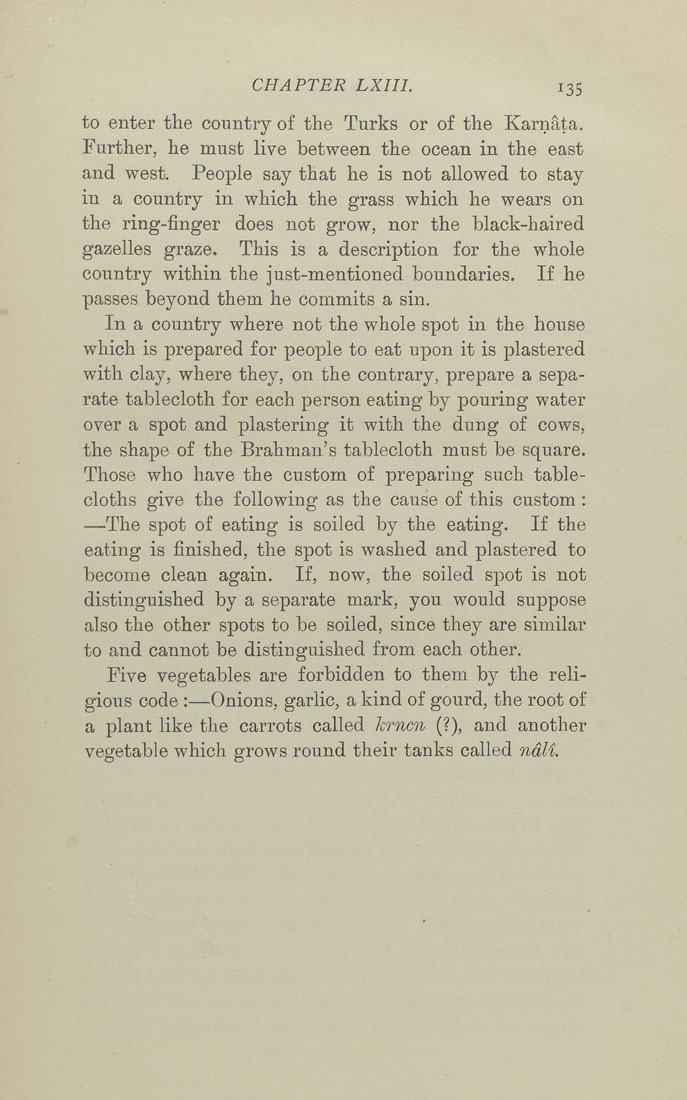Bīrūnī, Muḥammad ibn Aḥmad, Alberuni's India (v. 2)
(London : Kegan Paul, Trench, Trübner & Co., 1910.)
|
||
|
|
|
|
| Page 135 |

CHAPTER LXIII. 135 to enter the country of the Turks or of the Karnata. Further, he must live between the ocean in the east and west. People say that he is not allowed to stay in a country in which the grass which he wears on the ring-finger does not grow, nor the black-haired gazelles graze. This is a description for the whole country within the just-mentioned boundaries. If he passes beyond them he commits a sin. In a country where not the whole spot in the house which is prepared for people to eat upon it is plastered with clay, where they, on the contrary, prejaare a sepa¬ rate tablecloth for each person eating by pouring water over a spot and plastering it with the dung of cows, the shape of the Brahman's tablecloth must be square. Those who have the custom of preparing such table¬ cloths give the following as the cause of this custom: —The spot of eating is soiled by the eating. If the eating is finished, the spot is washed and plastered to become clean again. If, now, the soiled spot is not distinguished by a separate mark, you would suppose also the other spots to be soiled, since they are similar to and cannot be distinguished from each other. Five vegetables are forbidden to them by the reli¬ gious code :—Onions, garlic, a kind of gourd, the root of a plant like the carrots called krncn (?), and another vegetable which grows round their tanks called ndli. |
| Page 135 |







